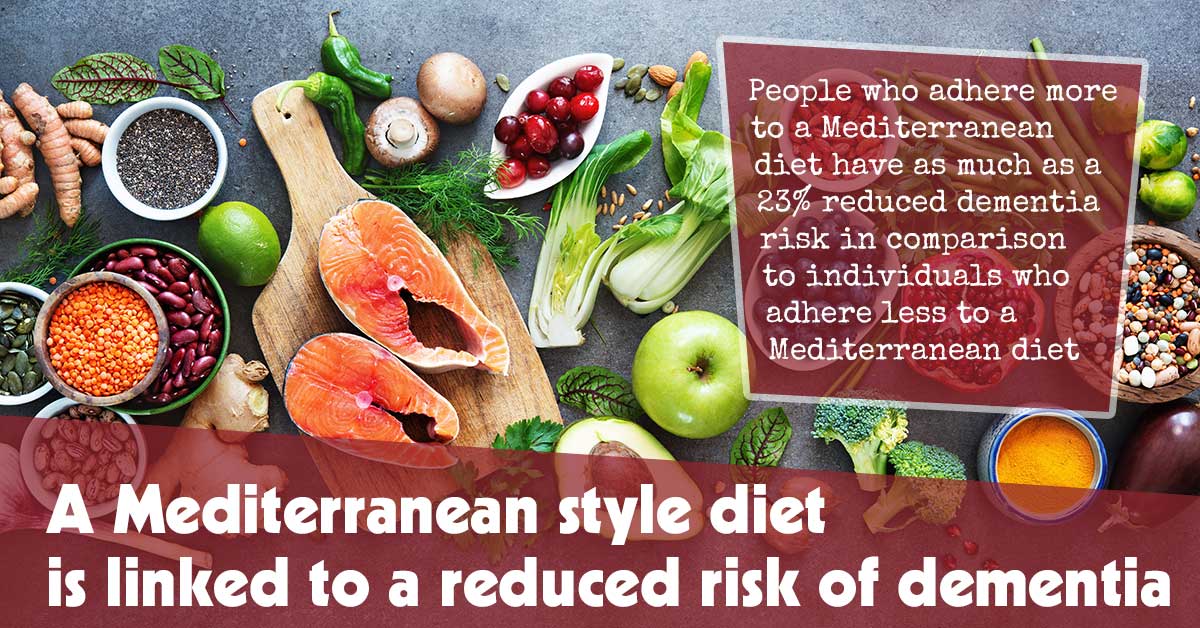According to a study, consuming a seafood, fruit, and nut-rich Mediterranean-type diet is linked to a reduction in dementia risk. People who adhere more to a Mediterranean diet have as much as a 23% reduced dementia risk in comparison to individuals who adhere less to a Mediterranean diet.1✅ JOURNAL REFERENCE DOI: 10.1186/s12916-023-02772-3
Diet could be a significant modifiable dementia risk factor that can be targeted for the prevention of disease as well as risk reduction but earlier research looking at the effect of a Mediterranean diet has usually been restricted to low dementia case numbers and small sample sizes.
Data were analyzed from 60,298 UK Biobank participants who had finished a dietary assessment. Participants were scored by making use of 2 measures for Mediterranean diet adherence.
There were 882 dementia cases throughout the average 9.1-year follow-up. The genetic risk for dementia of each participant was also considered by calculating their polygenic risk, a measure of all the different genes that are associated with dementia risk.
Individuals who adhered the most to the Mediterranean diet were found to have a 23% reduced risk of dementia compared to individuals with the lowest score of adherence, equal to an absolute reduction in risk of 0.55%.
No significant interaction was observed between the polygenic dementia risk and Mediterranean diet adherence, which the researchers suggest could indicate that a connection between greater adherence to a Mediterranean diet and a reduction in risk of dementia remains, regardless of the individual genetic dementia risk.
This result wasn’t consistent for all the sensitivity analyses and the researchers propose that more research is required to determine the interaction between genetics and diet on the risk of dementia.
The researchers conclude that, according to the data, a healthy plant-based food Mediterranean diet could be a significant treatment to include in future approaches to reduce the risk of dementia.



